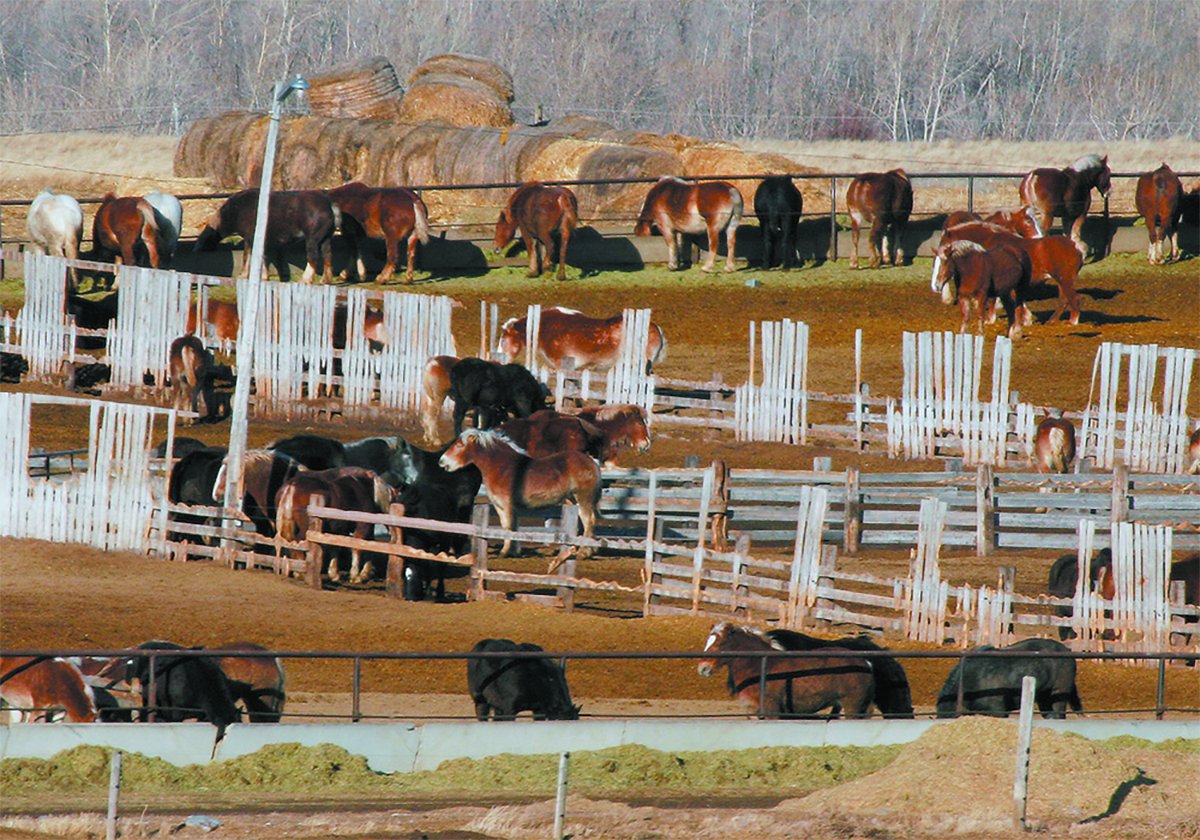In the children’s world of video games, special effects movies and the internet, nine and 10 year olds are still interested in learning about where their food comes from.
The Classroom Agriculture Program spearheaded by the former Alberta Cattle Commission 20 years ago has reached Grade 4 students in every corner of the province.
“We tell them, if you had breakfast, you support agriculture,” said program co-ordinator Elaine Deeg of the Alberta Beef Producers.
One of Canada’s longest running agriculture education programs, it received a provincial award for community service this year.
Read Also

Canada’s slaughter horse industry lacks transparency
The lack of clear reporting and public access to data keeps the industry largely hidden, leaving questions about humane treatment and traceability unanswered.
Thirteen groups including the major commodity groups as well as the veterinary association and Eastern Irrigation District provide funding and materials in the education packages called Partners. There are fun activities, puzzles, colouring pages and mini-quizzes that fit into the social studies and science curriculums to tell the story of food production, animal care, food safety and environmental responsibility.
A six minute video montage that quickly moves from pasture to plate scenes gives children a broader picture of what volunteers are talking about.
“Teachers are more willing to allow us to come in. Kids are becoming far more removed (from contact with food production),” said Roy Eckert, a New Sarepta beef producer who leads the committee and volunteers in schools.
As the province becomes more urbanized and agriculture more specialized, children are losing their connections to the farm. Most have no farm relatives or friends that they can visit and see what happens.
There are more new Canadians who probably immigrated from a city to an urban setting here and have no idea what goes on in the country.
They have found even in rural areas, children are not as well informed as in the past because their family operations are highly
Volunteers, who are mostly farmers, are encouraged to tell their personal stories in class.
“If you can get them talking, they are fine, because they are so passionate about their lives,” said Eckert.
All these challenges are met with a volunteer base of 500 people who deliver the program to 750 schools each spring. Yet as times change in rural areas with more off-farm jobs and other commitments recruiting help is getting harder.
“We recognize the importance of doing education but there are a number of challenges these days so volunteers are struggling to find the time and the energy,” said Eckert.

















